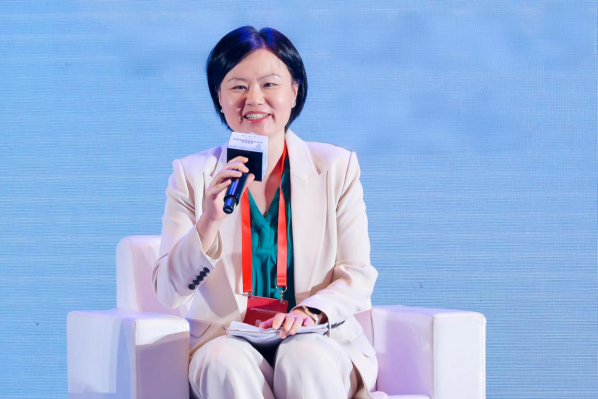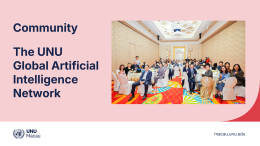On May 17, 2025, on the occasion of World Telecommunication and Information Society Day and the 160th anniversary of the International Telecommunication Union (ITU), Dr. Jingbo Huang, Director of UNU Macau was invited to contribute to a high-level roundtable discussion titled "Enhancing Women's Influence and Participation in the Digital Age." The event was held in Nanchang, Jiangxi Province, and gathered distinguished speakers from government, academia, and industry.
Dr. Jingbo Huang, joined the panel alongside leaders from the China Academy of Information and Communications Technology, All-China Women’s Federation, China Mobile Research Institute, Qualcomm, and ZTE. Dr. Huang contributed a data-driven, research-based perspective on the challenges and opportunities for women in the age of artificial intelligence (AI), drawing on UNU Macau’s work at the intersection of digital technology, gender, and ethics.
Dr. Huang highlighted that UNU has been collaborating with ITU and UN Women for several years to investigate gender-related challenges in the development and deployment of AI systems. UNU Macau’s recent researches revealed four core areas of concern regarding gender bias in AI:
- Algorithmic Discrimination: Due to biased training data and algorithmic limitations, facial recognition systems have shown higher error rates for women. Similarly, AI-powered recruitment tools may unfairly favor male candidates.
- Reinforcement of Gender Stereotypes: Some AI models associate men with high-skilled professions (e.g., doctors, lawyers) and women with caregiving roles (e.g., domestic workers, nurses), perpetuating outdated stereotypes.
- Underrepresentation in AI Development: The current gender ratio in AI research and development is approximately 4:1, leading to a significant underrepresentation of women's voices and perspectives.
- Technology-Enabled Gender-Based Violence: Emerging AI applications have been misused for online harassment, including stalking, non-consensual image manipulation, and deepfake abuse—forms of violence that are increasingly difficult to detect and regulate.
To address these complex challenges, Dr. Huang proposed four key strategies:
- Comprehensive Data Collection: Prioritize the inclusion of diverse and representative datasets, particularly those reflecting women’s experiences.
- Ethical and Bias Auditing of AI Systems: Promote transparency and explainability in AI design to mitigate embedded biases.
- Inclusive R&D Teams: Actively encourage and support women to enter and lead in AI research and development.
- Synthetic Data Correction: Ensure AI-generated data is reviewed and corrected for potential gender distortions.
UNU Macau is playing an active role in capacity-building and policy engagement. The Institute’s gender and technology training programs target policymakers, educators, students, and developers. UNU Macau has implemented training sessions with government officials and community groups in Southeast Asia, helping to integrate gender equality considerations into national digital policies.
This event marks a step in UNU Macau’s mission to foster inclusive digital futures through evidence-based policy research, multistakeholder collaboration, and global dialogue.





